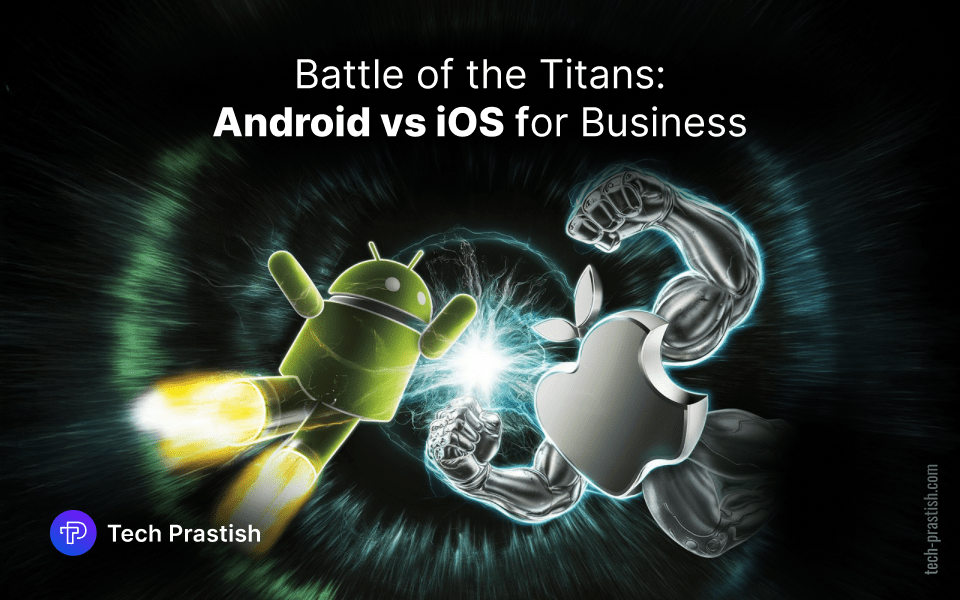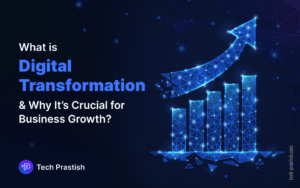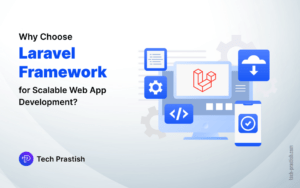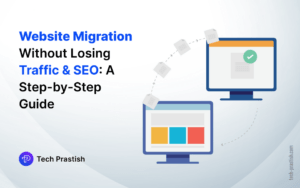
The digital transformation has shifted the gaze significantly — from desktop to laptop and from laptop to smartphone. We all use mobile phones regardless of profession. As the audience has shifted to smartphones, business owners have to accept the transition to mobile platforms. This lands us on a crucial point i.e., which mobile operating system is more business-friendly? Android or iOS.
Google’s Android and Apple’s iOS — both are the dominant operating systems used primarily in mobile application development, supporting both personal and enterprise users alike. These operating systems have a duopoly over the mobile OS with their own advantages and disadvantages. But, the choice depends on your specific business requirements. Let’s break down the key differences and help you determine which platform is more business-friendly.
iOS Vs. Android: The Two Dominant Operating Systems Battle
Both Android and iOS are robust platforms for app development therefore, it is important to consider their own set of features, capabilities, and user demographics. Understanding these key metrics is crucial to making an informed decision for your business.
Market Share
In the global market, Android holds a larger share of the mobile operating system i.e., 70.7% of the global market, while iOS has 28.5%. (Statista). But in the early 20’s Apple captured a larger share of the mobile operating system market than Android specifically in the US. (Counterpoint Research). Though Android controls a large market share, iOS apps are far better at generating revenue. If you’re looking to target the mass market, Android might be the more viable option.
Technical Considerations: Android vs iOS
Android and iOS operating systems have their unique architectures and can impact your mobile application development strategy.
- Hardware Diversity: Every iPhone and iPad is built to run iOS seamlessly. In contrast, Android empowers multiple devices from different manufacturers, leading to variability in hardware quality and performance.
- App Development Tools: iOS uses Swift and Objective-C, with tools like Xcode and Apple’s iOS SDK. On the other hand, Android app development uses Java, Kotlin, and several other languages, offering a bit more flexibility in development.
- Cost of Development: Comparatively Android app development is more costly because of the range of devices it supports, requiring more extensive testing and optimization. Whereas, iOS has standardized devices which are typically cheaper to develop for.
User demographics: Who Uses What?
A significant factor that influences the decision is your target audience. iOS mostly caters the elite customers. On the other hand, Android has captured a larger global market share, and users span a more diverse socio-economic demographic. Depending on these demographic results, you can make your decision. For example, if your business caters to users in regions where Android is the dominant platform, developing an Android app might give you broader access to your target audience.
Security & Privacy: A Critical Consideration for Business
Apple’s end-to-end encryption and regular security updates provide iOS with higher security that appeals to businesses dealing with sensitive data. Its robust app verification process ensures that all apps go through a stringent review process before being published. Android is an open-source platform that tends to have vulnerabilities and security updates varying between manufacturers.
Integration with Other Devices
iOS boasts seamless integration with other Apple products like the Mac, iPad, and Apple Watch, providing businesses that use Apple’s ecosystem with a unified experience. However, Android offers better integration with a wide range of devices and services, especially within the Google ecosystem. For businesses targeting mass audiences using a variety of devices or services, Android can be the more flexible option for them.
What is iOS?
For application development, the iOS operating system uses coding languages such as Swift and Objective-C and tools like Xcode and Apple’s iOS SDK for Apple devices like iPhone and iPad. Privacy and security are the key factors for which iOS development is known.
What is Android?
For application development, Android uses coding languages such as Java, Kotlin, JavaScript, C++, or C. Google’s Android is compatible with the majority of smartphones, tablets, wearables, and other smart devices. It is popular and dominates the OS industry.
Differences Between Android and iOS
Android and iOS comparison going from long ago, and still both the operating systems ruling the tech world. From a user perspective, the app development platforms are compared based on their performances, popularity, usability, scalability, and user-friendliness. While developing a business application, we need to consider these factors. Additionally, think about which platform will go with the business and how likely the target audience is to use it.
Both operating systems provide an intuitive user experience. Let’s have a look at the app development that your businesses should consider while selecting an OS with its characteristics.
Android vs. iOS: Key Differences
Operating System |
Android |
iOS |
| Programming Language | Java or Kotlin | Swift/Objective-C |
| App Design | Use feature animations, saturated colors, and complex interfaces. | Prioritize simplicity and minimalism. |
| Development Cost | Costly due to device diversity. | Cost-effective due to standardized hardware |
| App Availability | The app is available on Google Play Store and third-party stores. | The app is available only on the Apple App Store. |
| Security and Privacy | Open-source |
|
| Customization | Highly customizable | Less customizable |
| Integration | Integrates with a diverse range of devices and services within the Google ecosystem. | Integrates with Apple devices like Macs, iPads, and Apple watches. |
| Deployment and Management | Android Enterprise provides a suite of tools for managing Android devices for businesses. | Apple offers a range of enterprise solutions for deploying and managing iOS devices for businesses. |
| Privacy Controls | Privacy controls can vary across devices. | Robust privacy controls with great security for business. |
| OS Updates | Regular updates, frequent minor security updates, and bug fixes. | Monthly security updates and feature drops several times a year. |
| Support and Maintenance | Support varies widely depending on the device manufacturer. | Centralized support through Apple’s customer service. |
Android vs iOS App: Which Platform is More Business-Friendly?
The decision between Android and iOS depends on the unique needs of your business.
- Android is an open-source, easy-to-customize, and market-dominant platform with a large global audience and cost-conscious users. If businesses are looking to build apps for a wide variety of devices and markets then they can go with Android.
- iOS targets a premium user base. With a standardized hardware ecosystem, superior security protocols, and higher app revenue potential, iOS can be an excellent choice for businesses focusing on a high-end market.
Determine the best choice between Android vs iOS with Tech Prastish’s expert consultants because by now, you must know that selecting one operating system or considering both completely depends on your business requirements. With decades of industry experience, we know that for businesses, it all boils down to two major constraints: time and budget. Our expert mobile app development experts analyze and research your requirements, target audience, budget, and time bandwidth to provide you with an apt solution. Our application market experts can assist you in understanding these factors and changing audience demands to make data-driven and strategic decisions for your business.
No matter which option you choose from iOS vs. Android app development, as a leading mobile app development company, Tech Prastish Software Solutions Pvt. Ltd. will definitely provide you with customized solutions to enhance your business success. Experienced mobile app developers at Tech Prastish will make sure that you receive a top-notch solution by sticking with your requirements.
So, if you are willing to develop a result-driven mobile application, reach out to us to build a native, hybrid, or cross-platform mobile application with greater clarity and insight.




